These DAOs are changing Japan.
Japanese DAOs are transforming the country.A few days ago, I wrote some records about going to Tokyo to see the video game expo. This time, I will talk specifically about the Japanese DAOs that I observed. The title may be slightly exaggerated, but it is not entirely clickbait.
On the day I arrived in Tokyo, I visited a shared office space for cryptocurrency practitioners. Many Japanese DAOists, Web3 entrepreneurs, and a reputedly active cryptocurrency investment firm in Tokyo gathered there.
The location is excellent, right next to Shibuya Station, yet hidden in a relatively inconspicuous intersection. The shared space occupies the 3rd to 6th floors of a building, with two floors exclusively reserved for that venture capital firm and several larger affiliated team companies. The other two floors are rented by individuals or small startup teams with only two or three people.
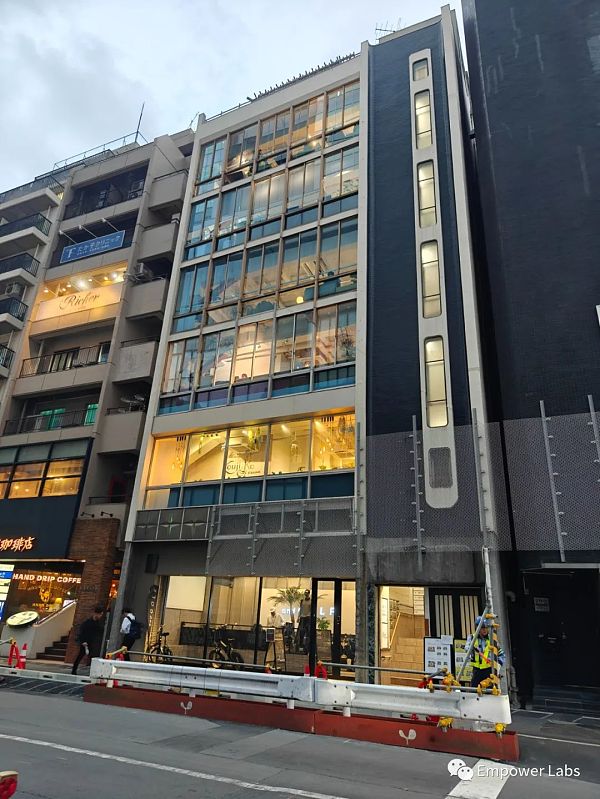
- Aside from speculation, how do we understand the core narrative of Ethscriptions, ESC VM?
- a16z Social Media Operation Experience What Did We Do Right to Increase Fans by 100,000 in 1 Year from 0?
- ETHS hits a new high, how sophisticated are the operational methods behind it?
The office space is very simple, even somewhat rudimentary. However, the prices are quite affordable, with desk prices at 2,200 RMB and private booths only requiring 3,500 RMB per month. There is also an evening shift, which costs only 550 RMB per month but can only be used after 5 PM. It is probably targeted at those who have side jobs after work, making it suitable for friends who want to participate in DAOs during their spare time. Temporary usage is also available, costing only 100 RMB per day, but it can only be used until 5 PM.
I had made an appointment with the operations manager to meet at 5 PM, which might have been a bit late. There weren’t many people in the office, and everyone was quietly doing their own things. The person who received me on-site was a young girl, with a clean and pleasant appearance and decent English skills. She showed me around two floors and introduced various facilities and support for tenants. After going around, I felt that although the hardware was rudimentary, it was comfortable and relaxed. However, whether it was the booths or meeting rooms, the sound insulation was practically non-existent. As soon as you made a phone call or had a meeting, it was like being in a public space. It actually matched the spirit of DAOs quite well. You are welcome to come and listen.
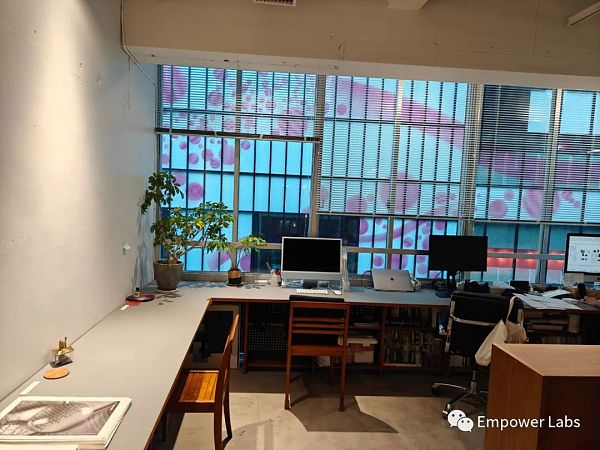
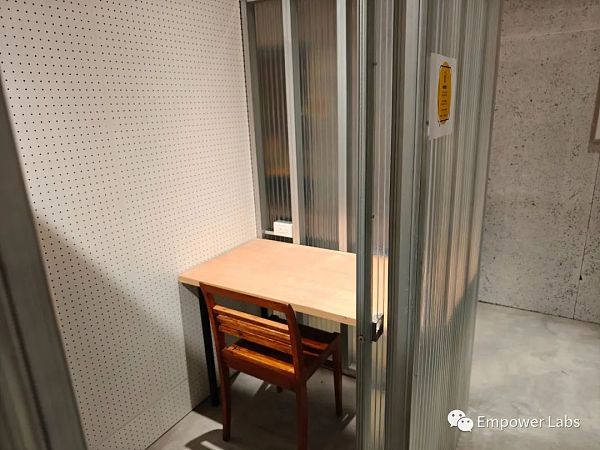
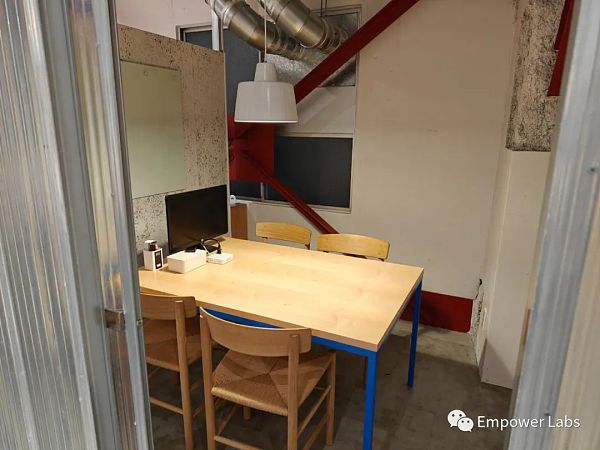
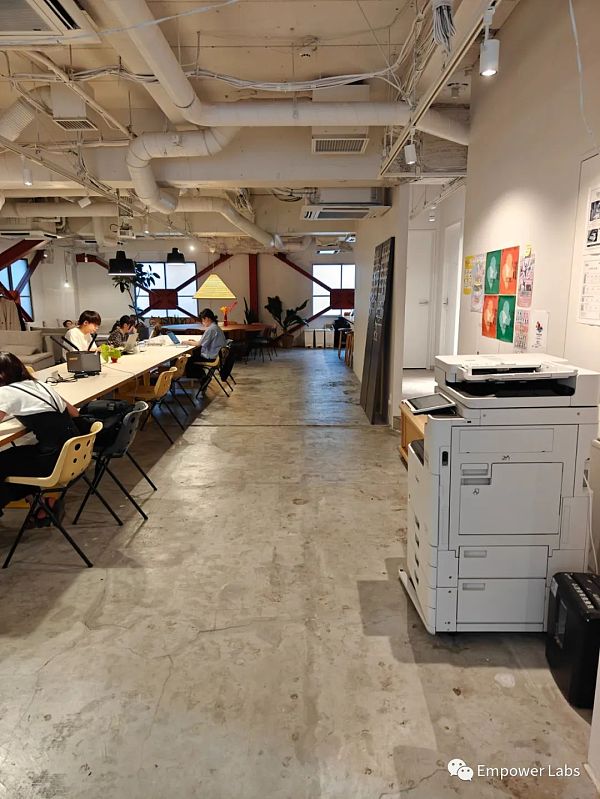
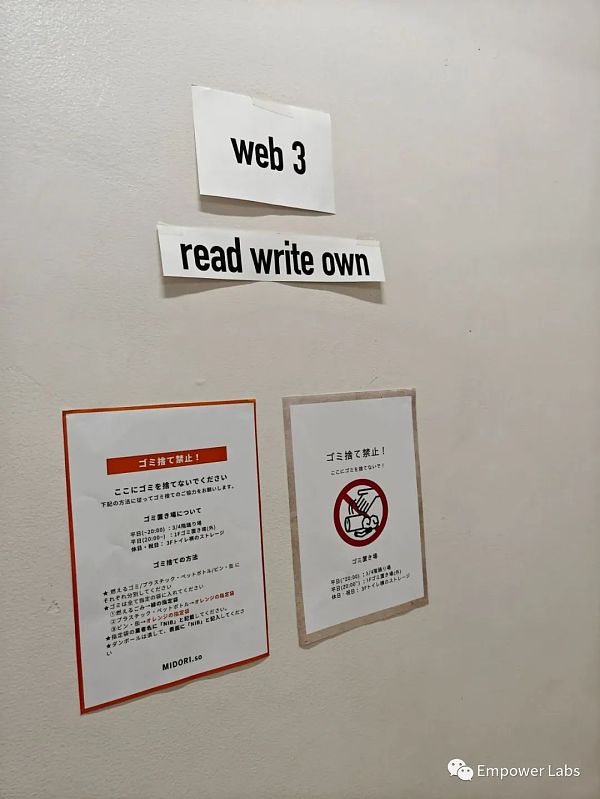
What left a deep impression on me was a photo wall, where many members seemed to leave a Polaroid photo of themselves, adding a sense of community to the space. The girl pointed at the photos and told me who they were and what projects they had done. Most of them were relatively famous entrepreneurs, but unfortunately, I hadn’t heard of any of them. As for tenant support, what impressed me the most was that even if you only rented a desk, they would help provide necessary materials for company registration, such as an address. I don’t know if all shared spaces in Japan are like this, but it feels quite friendly to entrepreneurs.
The space holds events every Monday, and the invited guests often come from different DAOs. Although there are many cryptocurrency-themed office spaces in Tokyo, I believe this one is truly unique in its close integration with the DAO ecosystem. Its operating model also has distinct DAO characteristics: each member receives an NFT that is associated with the door lock system, and they can open the door through a dedicated app. Additionally, the interaction between members and communication with the management team are very active. They can organize activities and make suggestions spontaneously, and some decisions are even determined through member voting. Although fundamentally, it is still a company-operated office rental project, these community elements add a unique charm to it.
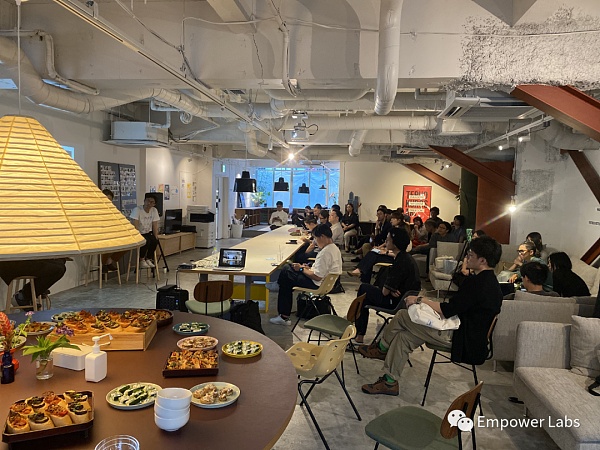
I had been in contact with Japanese DAOs long before this trip. Over the past few years, I have met some Japanese entrepreneurs and become good friends with a few of them. The world is made up of circles, and Japan is no exception. My friends knew about my interests and occasionally introduced me to some people, including those in the gaming, investment, and entrepreneurial fields, as well as activists in the DAO space.
I used the term “activist” because that is my direct impression of the local DAO scene in Japan.
There are many participants from Japan in global DAOs, such as BanklessJP and PNouns. Bright Moments DAO, known for operating an offline art gallery and exhibitions, even chose Tokyo as its Asian hub and successfully held an opening art event in May. I have been a member of Bright Moments for a long time, and before going on this trip, I specifically discussed their future plans in Tokyo with the team responsible for operations in different regions.
However, what interests me more than these global DAOs are the DAOs that have emerged locally in Japan. Most of the DAOs I have come into contact with give me the impression of activists because they all seem to be working towards a common goal – social impact.
Perhaps influenced by Japan’s relatively closed environment, there is a particularly strong demand for international communication and cooperation. Several DAOs hope to promote exchanges and collaborations between Japan and the international community. More DAOs mainly focus on internal development – they aim to drive progress and transformation from villages to industries, and even at a national level, through community collaboration.
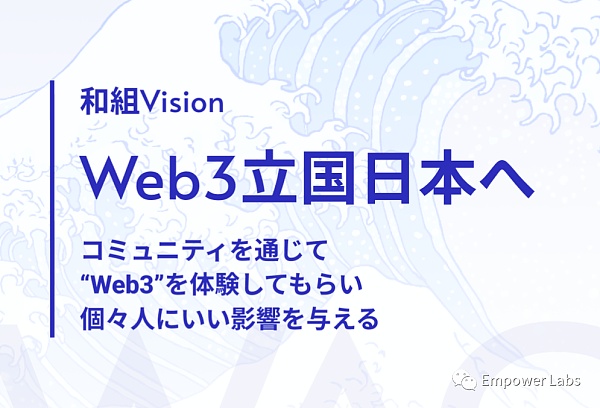
A DAO that promotes the establishment of Web3
Among all the DAOs in Japan, Yamanashi DAO is relatively well-known. Yamanashi is a small village located deep in the mountains of central and northern Japan, which used to have a permanent population of 2,200 people. The village was severely damaged in an earthquake 19 years ago and the entire population was forced to evacuate. After the earthquake’s impact ended, only 800 villagers remained there for more than a decade.

Faced with problems such as population loss and economic decline, Yamanashi Village launched the Digital Villager NFT project in December 2021, inviting digital villagers to participate in the reconstruction of the rural area. At that time, it was the NFT bull market, and this unique narrative attracted great attention. NFTs were sold out, and the initiators were even invited to speak at the Japanese National Diet.
However, operating the project was not easy. The operation was mainly carried out by the local volunteer organization, the Yamakoshi Residents’ Committee. In the review at the end of 2022, the team admitted that the development was not smooth. They shifted their focus to the global community, but the concepts of “survival of marginal villages” and “regional revitalization” were too context-dependent and not suitable for global use. Subsequently, based on the lessons learned from a year of operation, they conceived a new direction. They expanded the concept of digital villagers to more regions to create network effects and also formed a more effective DAO operating structure.
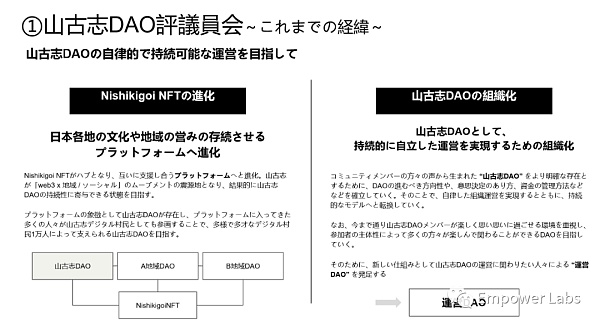
New Plan for Shanguzhi DAO
Coincidentally, a non-profit organization called “Beautiful Countryside Alliance” established in 2005 in Japan has launched the “Beautiful Countryside DAO”. It positions itself as a collaborative regional revitalization platform that connects beautiful countryside and digital villagers. So far, 71 villages have joined the DAO alliance.
Driving industry changes is also a characteristic of the Japanese DAO ecosystem. However, unlike some industry DAOs that want to disrupt everything from the beginning, Japanese industry DAOs are more moderate. They are mostly based on a specific industry, promoting mutual assistance, and may develop some professional service businesses in the future.
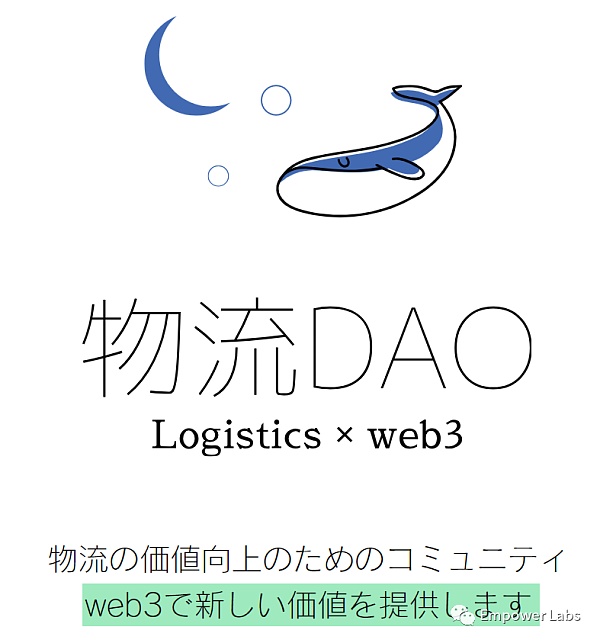
A logistics DAO with the goal of increasing B-end attention to logistics and fully reflecting the value of logistics. They are also developing logistics consulting services with members who have experience in shipping companies, freight forwarders, customs clearance agencies, and aerospace logistics, and have established a non-profit organization with former customs employees.
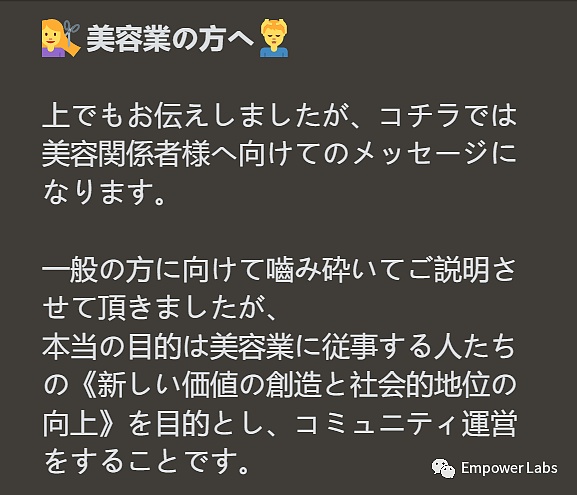
A beauty DAO with the goals of “creating new value” and “improving the social status of beauty industry practitioners”.
A more ambitious DAO focuses on influencing national policies, with RulemakerDAO being one of the representatives. As the name suggests, the goal of this DAO is to promote the formulation of regional and national policies through the power of the community.
Japan is currently planning to introduce a digital nomad visa to attract global digital nomads to stay in Japan for a short period of time, and RulemakerDAO is one of the main driving forces behind this policy.
On March 21, RulemakerDAO established the Digital Nomad Visa Promotion Project.
On April 19, members of RulemakerDAO submitted their thoughts on the digital nomad visa to then Vice Minister for Foreign Affairs, Toshisuke Motegi.
On May 8, RulemakerDAO held an open discussion with Vice Minister for Foreign Affairs, Toshisuke Motegi, and some professionals related to digital nomads.
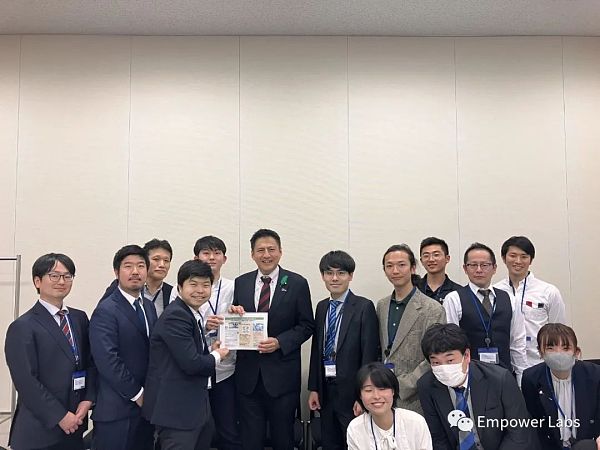
Image sourced from Rulemaker community public materials
On May 19, they submitted a proposal to Member of Parliament Soichiro Imajima. Soichiro Imajima is the Minister of the Youth Department of the ruling party, Liberal Democratic Party, and the Executive Director of the Entrepreneurship Promotion Committee. He is a web3-friendly politician and was recently appointed as the Vice Minister of Education, Culture, Sports, Science and Technology (equivalent to the Vice Minister of the Ministry of Culture and Technology) in the Cabinet reshuffle on September 17.
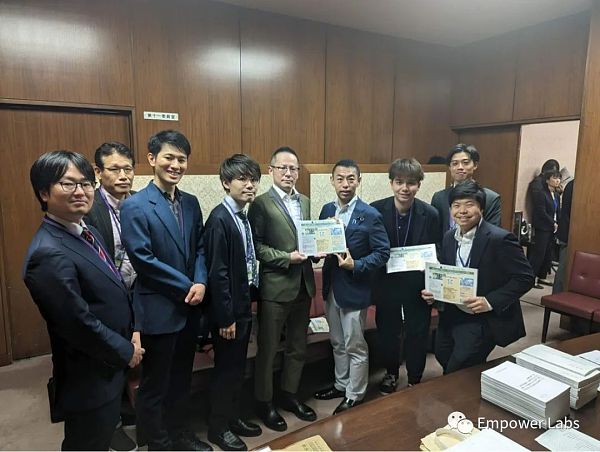
Image sourced from Rulemaker community public materials
On June 8, the Liberal Democratic Party Labor Revitalization Committee held a plenary meeting to discuss the digital nomad visa, and RulemakerDAO members were invited to participate in the discussion.
On August 31, RulemakerDAO held another digital nomad visa discussion meeting and invited Member of Parliament Soichiro Imajima to attend.
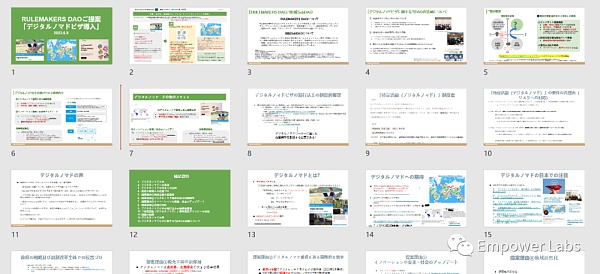
Proposal for Digital Nomad Visa
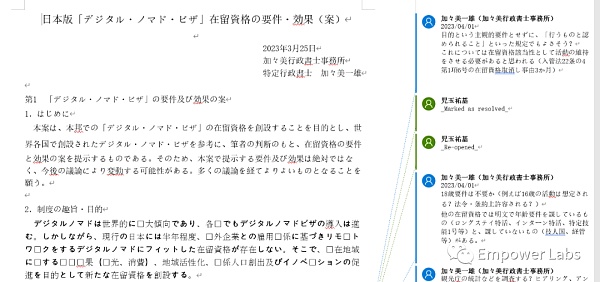
One member even drafted the policy proposal directly.
The digital nomad visa policy is still in the process of being promoted and has not yet been fully implemented. Regardless of whether it can eventually be implemented, DAO has already demonstrated its power in promoting national affairs.
The digital nomad visa is not the only thing being planned for promotion. RulemakerDAO also plans to hold discussion meetings and propose discussion points and policy suggestions in the local government xWeb3 and tourism sectors.
The Japanese government is also taking action. The ruling party, Liberal Democratic Party’s Social Affairs Promotion Committee, released the Web3 White Paper in April this year, which includes a new tax system for LLC-type DAOs and legislation for investment-type DAOs.
In the wave of embracing Web3, the exploration of various social DAOs in Japan has shown that the concept of community is inspiring a wider range of people. They are not just reshaping new paradigms of collaboration and governance, but also revealing a future trend: communities will play an increasingly important role in the development of future society.
The journey of DAOs in Japan is still in its early stages, and perhaps most of the current Japanese DAOs will gradually disappear. But whether they can continue to develop or gradually fade away, they have already planted seeds in the minds of Japan’s business community, political circles, and even ordinary people. As these seeds of change take root and sprout in people’s hearts, they are expected to become a pioneering force that leads innovation and the integration of tradition in conservative Japanese society.
Regarding DAOs in Japan, my observations are mostly surface-level and do not represent the whole picture. Due to language limitations, there may also be errors in the interpretation of certain information. Please consider this carefully when referring to it.
We will continue to update Blocking; if you have any questions or suggestions, please contact us!
Was this article helpful?
93 out of 132 found this helpful
Related articles
- Current Status and Potential Variables of MakerDAO, the ‘DeFi Veteran
- Can Social Tokens Recreate the Glory of DeFi Summer?
- Interdisciplinary Paper Part 2 Storage Proof, Computation, and Inflation
- Inventory of three development proposals to be launched by Ethscripitons
- Interpreting the non-custodial liquidity protocol Hover A differentiated and hierarchical new lending system
- Layoffs, business restructuring, strategic adjustments, where will Yuga Labs go?
- Regulatory uncertainty leads to continuous 18-month decline of stablecoins




